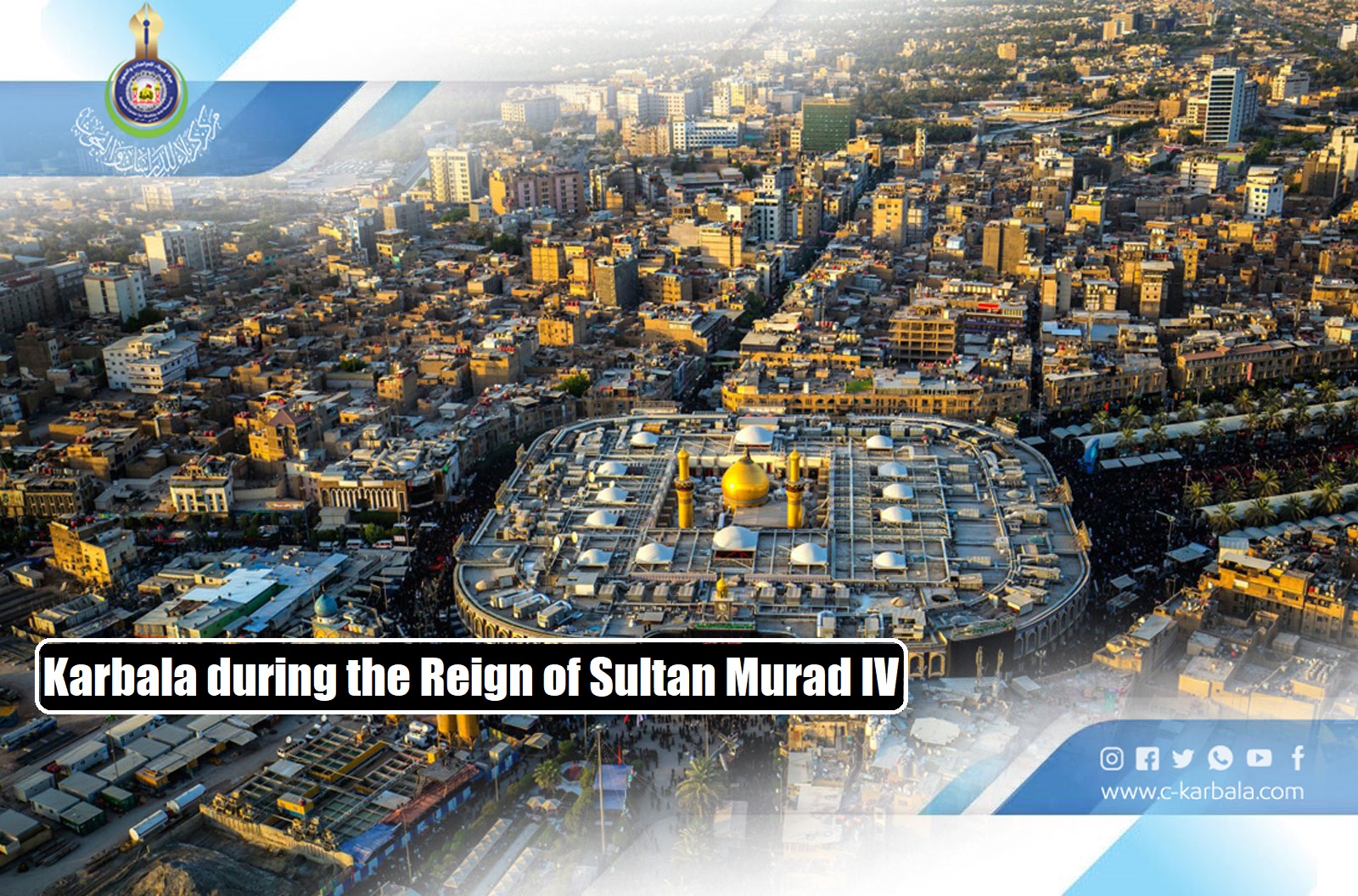He is Murad IV, Ibn Ahmad I, ibn Muhammad III, Ibn Murad III, Ibn Salim al-Thani, Ibn Sulayman al-Qanuni, Ibn Salim al-Awwal, Ibn Bayazid II, Ibn Muhammad al-Fatih, Ibn Murad II, Ibn Muhammad I, Jalabi ibn Bayazid I, Ibn Murad I, Ibn Orkhan Ghazi Ibn Othman bin Artagul.
The Ottoman Sultan Murad IV seized Iraq in (1048 AH / 1638 AD). It was destined that this country fall again as a prey to the hands of the Ottomans. Murad's main desire was for power and throne, so he decided to use religion for his own benefit. He was blood thirsty to a large extent, as he killed thirty thousand Shiite men were killed in one massacre, underestimated the endowments of the holy shrines and confiscated them, and humiliated their inhabitants.
From this, he we can have a clear view about the nature of authority led by Sultan Murad IV, not to mention the endowments donated by Khawaja Marjan, Hajj Amin al-Din, and the rest of the kings and sultans, along with the crops donated by Sultan Suleiman the Ottoman and other rulers, which were all confiscated by Sultan Murad without taking any consideration of religion or human conscience.
Source:
Madinat Al-Hussein "Imam Hussein's City".
By: Muhammad Hasan Mustafa Al-Kilidar Al Tohme.
A publication of Karbala Center for Studies and Research
[Vol. 3, Pg. 58].

